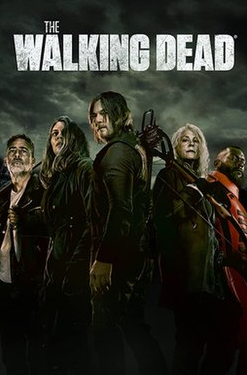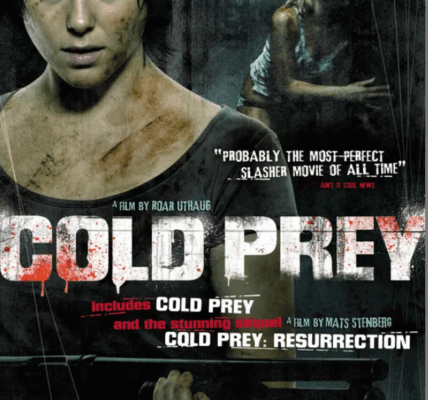1. Plot Summary
The Walking Dead is set in a post-apocalyptic world overrun by zombies (commonly called “walkers”). After being shot in the line of duty, Sheriff’s Deputy Rick Grimes falls into a coma. When he awakens, he discovers society has collapsed and the dead have returned.
Rick sets off to find his wife Lori and son Carl, joining a group of survivors struggling to stay alive. As they move through devastated landscapes, they must fight not just the undead but also other human survivors, whose desperation leads to conflict, betrayal, and moral challenges.
Over seasons, the group attempts to establish safe communities, fight off hostile groups, and confront questions of leadership, justice, trust, and what humanity means in a world dominated by death.
2. Notable Elements
- High stakes and unpredictability: Major characters often die unexpectedly, which keeps tension high and reinforces the fragility of safety.
- Character arcs under pressure: Rick’s transformation from idealistic deputy to hardened leader is compelling. Others—Daryl, Carol, Michonne—grow significantly under survival stress.
- World-building and moral complexity: The show doesn’t treat all antagonists as purely evil; many are shaped by pain, loss, ideology.
- Cinematography & setting: The rural, overgrown landscapes, abandoned towns, and decaying infrastructure create a haunting, immersive atmosphere.
- Emphasis on human vs human conflict: Often the biggest threat is not the walkers, but clashing human factions, power struggles, and internal breakdowns.
Weaknesses:
- At times pacing drags or sidetracks into filler episodes.
- Some seasons are criticized for repetitive plot cycles (safe zone → collapse → rebuild).
- Character focus shifts sometimes leave beloved characters with little development.
3. Themes and Messages
- Survival and identity: What do people become when civilization falls? The show constantly asks how much moral compromise is acceptable.
- Community and leadership: Leaders emerge (and fail) in crisis; the success or ruin of a group often hinges on unity, trust, and sacrifice.
- Hope, loss & resilience: Despite devastation, characters cling to hope—of family, home, normalcy.
- Human nature under duress: The series explores how fear, power, betrayal, and desperation can warp ethics.
- Death and what it means: The walkers are ever-present. Characters face the dead, death of loved ones, and the question of whether the living are truly more dangerous than death itself.
In relation to holiday traditions or sentiments: While The Walking Dead is not a holiday story, its themes of caring for others, protecting community, and holding onto hope in darkness resonate with the idea of compassion, family, and perseverance often celebrated at holidays. The struggle to maintain humanity even in dire times mirrors the deeper moral reflections many hold during festive seasons.
4. Personal Impressions
Strengths I appreciated:
- The emotional impact of losses and triumphs is real—when a favorite character dies, it often hurts.
- The moral ambiguity is refreshing; the show doesn’t always give easy answers.
- Some episodes are standout — quiet, character-driven, or suspenseful without relying solely on action.
- The cast often delivers strong performances under extreme circumstances.
Flaws I noticed:
- Some seasons feel padded, with “walker of the week” episodes that don’t advance the larger story.
- Repetition of story beats—safe shelter → under siege → collapse → move on — can feel formulaic.
- Some character arcs stall or regress, frustrating investment.
- In later seasons, the scale becomes grand, but personal intimacy sometimes suffers.
5. Audience Recommendations
You’ll enjoy The Walking Dead if you:
- Like post-apocalyptic, high-stakes drama and horror.
- Are interested in character-driven narratives in extreme settings.
- Appreciate moral complexity and conflict beyond simple “zombies vs humans.”
- Don’t mind many seasons, variable pacing, and emotional investment.
You might struggle with it if you:
- Want tight, lean storytelling with no filler.
- Prefer closure and consistency over long arcs with shifts.
- Don’t like shows where characters often die or get traumatized.
6. Conclusions & Rating
The Walking Dead is a landmark in zombie / apocalypse storytelling: ambitious in scale, emotionally raw, and morally probing. It has missteps, especially in pacing and consistency, but its willingness to kill beloved characters and test ideals sets it apart. It’s not perfect, but for those who stick with it, it offers profound moments.
Final Recommendation: Highly recommended for fans of survival drama, horror, and character conflict in a bleak world.
⭐ Rating: 4 / 5
Watch more:




